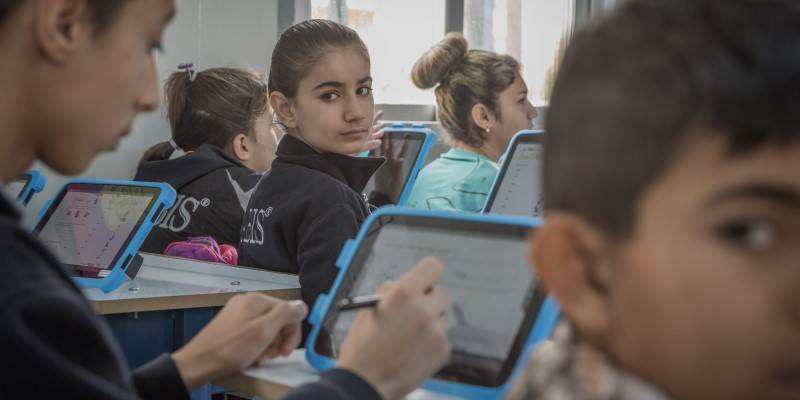Check Against Delivery
Partnership and collaboration lie at the heart of the 2030 agenda and is a prerequisite for realizing the sustainable goals.
International entities, civil society, governments and the private sector need to work effectively together is we are to achieve the SDGs and reaching the Sustainable Development Goal on education requires not only increased efforts, but more targeted actions: to include the marginalized and to improve the quality of education.
Norway is committed to advancing quality education and lifelong learning through science, technology and innovation and with this view we support and we facilitate collaboration between civil society organizations, research institutions, and private sector actors.
Norway has, through our aid agency Norad, signed up to the widely endorsed Principles for Digital Development. We prioritize using open licensing and collaborative approaches in our work, and on creating and using solutions that other stakeholders can build upon.
We have in particular prioritized to promote use technology and innovation for:
- Improving access to early grade reading resources
- Improving access to learning opportunities for children with disabilities (vision and hearing impaired)
- Improving education management information systems (EMIS)
Examples of what this means in practice:
Through an education app for Syria, Norway and international partners have sourced the development of two high-quality Arabic literacy learning games. In an independent evaluation conducted in Jordan in 2017 these two games were found to improve oral reading fluency scores with 50% percent on average for Syrian refugee children playing one of the games compared to those in the control group. Both games have open licenses, and one of them has been adapted to more than 40 languages by a US based non-profit, and has radically increased the availability of digital learning resources in underserved languages.
Another example is The Global Digital Library. As part of the Global Book Alliance, which includes most major global education stakeholders, Norway is managing this flagship initiative. This Digital Library collects openly licensed early grade reading resources, primarily books, and makes them freely available both in print friendly formats and in formats suited for digital reading. Currently there are 23 languages on the platform, but already by the end of the year this will have increased to nearly 50 languages, with plans for 100 languages by end 2020. The Library is also linking to different language versions of the EduApp4Syria-games. So this means that we are now providing access to both free self-learning games for literacy and early grade reading books in languages including Nigerian Hausa, Kenyan Swahili as well as several South African languages. Recommend to check it out! https://www.digitallibrary.io.
In our efforts to improve the quality and use of education management information systems we are piloting the adaptation of an open source health information management system called DHIS2, which is my third example. This system is currently in use in more than 100 countries globally as part of the Health Information Systems Program. Through adapting this quite generic system to the education sector, we are building upon experiences from the health sector. Also hoping to tap into the communities of practice and capacity building structures that have been built up at the country and regional level.
Norway is currently working closely with UNICEF Ventures, in the Office of Innovation, to help make these initiatives and other open source technologies and content from a range of sectors more easily discoverable through a Platform for Digital Public Goods. This can make it easier for stakeholders in the global education community to collaborate, expand on - and adapt what others are doing. UNICEF Ventures/Chris Fabian can share more detail on this with those of you who are interested.
To conclude, ensuring that no one is left behind and that everyone, everywhere can benefit from quality education requires broad partnerships and concerted effort. Only together can we achieve the SDG4: Quality Education for All.
